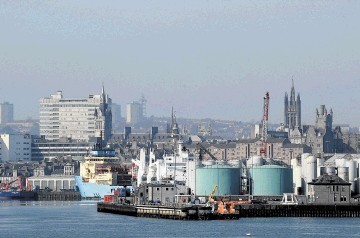
Friday’s OPEC meeting in Vienna confirmed what the global oil and gas industry was already resigned to – no curb to production, the supply overhang extending and more pain for the upstream industry as a whole.
Confirmation of the lower for longer scenario means there is likely to be no let up of the harsh trading conditions of the last 12 months.
Somewhat ironically, it might at least provide some certainty for the industry in terms of the market conditions it faces.
This should enable it to make informed decisions, albeit these will be extraordinarily hard for corporate entities and the individuals who work in the industry.
Lower for longer is going to drive the UKCS industry into new territory as potential issues that have been in the mix this year become real challenges that need to be addressed.
Exploration and production companies initially responded to the oil price collapse with the near-term levers available to them. We have seen exploration and capex spend reduce significantly and supplier concessions, all of which have flowed through to seriously impact the supply chain.
There have been extensive redundancies across the sector, abandonment of projects, deferral of all non-essential spend (and arguably of some potentially essential spend) leading to profit warnings, huge reductions to EBITDA, cash flow pressure, impairment and covenant resets, to name but a few of the challenges.
However, this is only the beginning of the journey for the industry as more restructuring and transformation actions are required, particularly as the final effects of price hedging of 2015 production fully unwind, which have so far protected many larger corporates from feeling the full impact of the oil price reduction.
Recent months have also seen a marked increase in concern from lenders and investors across the spectrum of operators and oilfield services companies of all sizes as to the viability of businesses, their ability to repay debt and undertake the changes needed to survive.
Stakeholders are becoming increasingly involved. We are hearing a common theme of businesses not having undertaken appropriate financial scenario planning or properly considering their contingency plans.
Sitting tight and hoping that the cycle will provide salvation was not and is not a viable option in this market if you want to retain control of your own destiny.
We also anticipate that the focus will begin to shift onto medium to longer term decision making, including moth-balling and divestment considerations which should generate some M&A activity that may just give the sector the kick start it needs for some of the strategic change required to arrive at operations which are truly sustainable.
In the current UKCS market, the willingness, and ability, of companies to continue to operate marginal fields is reducing.
In some instances, this may result in earlier than anticipated cessation of production and the acceleration of the associated decommissioning burden.
The impact could be a domino effect, raising the very real possibility of significant resources being left in the ground, as the cost of maintaining ageing infrastructure mounts for certain mature, late life assets that remain active.
However, the cost of decommissioning is itself a liability that operators will seek to defer as long as possible.
From an M&A perspective, a prolonged lower oil price has produced some clarity for future pricing, and is one step towards narrowing the valuation gap between buyer and seller price expectations.
Those with cash flow constraints or debt burdens that require refinancing can reasonably conclude that weathering the storm of low prices may not be possible for the length of time now forecast.
As the gap in valuations closes, we would hope for an increase in deal flow across the sector, which may help to reduce the overall number of corporate failures.
The number of failures to date is relatively low but the trend is upwards.
The year ahead is therefore going to pose a myriad of challenges for the industry with operators and service companies having to engage with oil-price driven scenarios that will impact upon their investors, partners, customers, contractors and other stakeholders.
Those businesses that proactively manage their own destinies in this climate will be best placed to weather the storm and should be able to capitalise when the upturn eventually comes.
In the best case scenario, the upstream industry will emerge from this cycle more efficient and better equipped for the long term through a continual focus on cash flow and working capital management and cost efficiency.
Achieving this will necessitate businesses actively and carefully managing their stakeholders, properly assessing risk within the supply chain and planning and preparing for the worst.
Geoff Jacobs is restructuring director with KPMG in Aberdeen
Recommended for you
